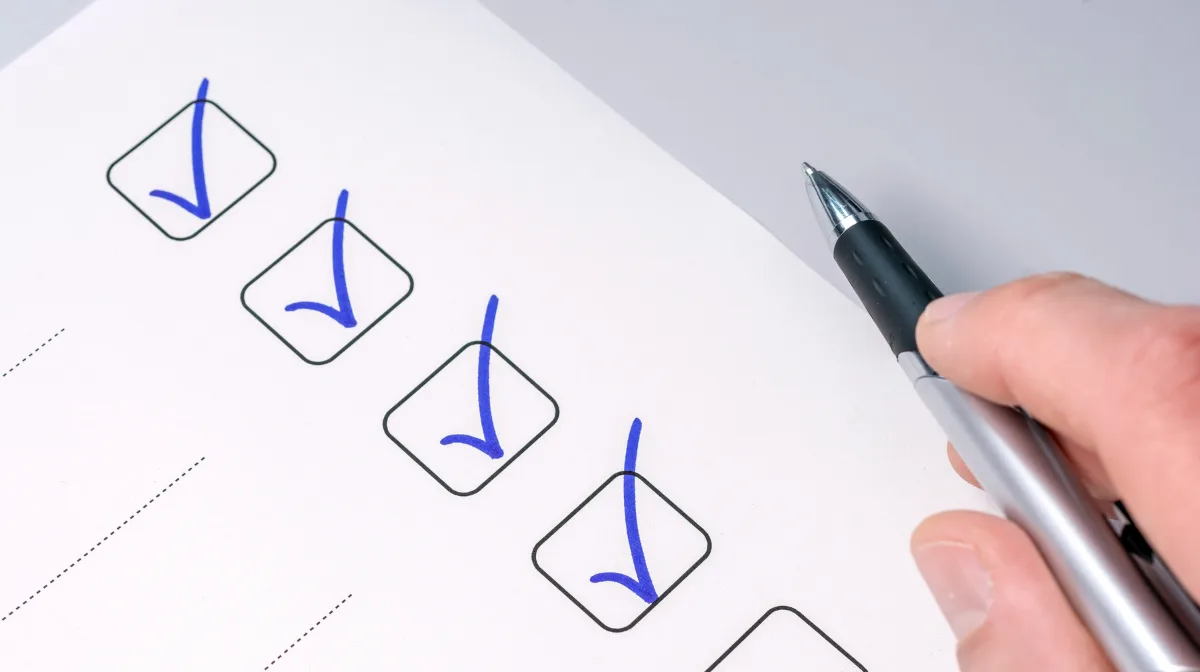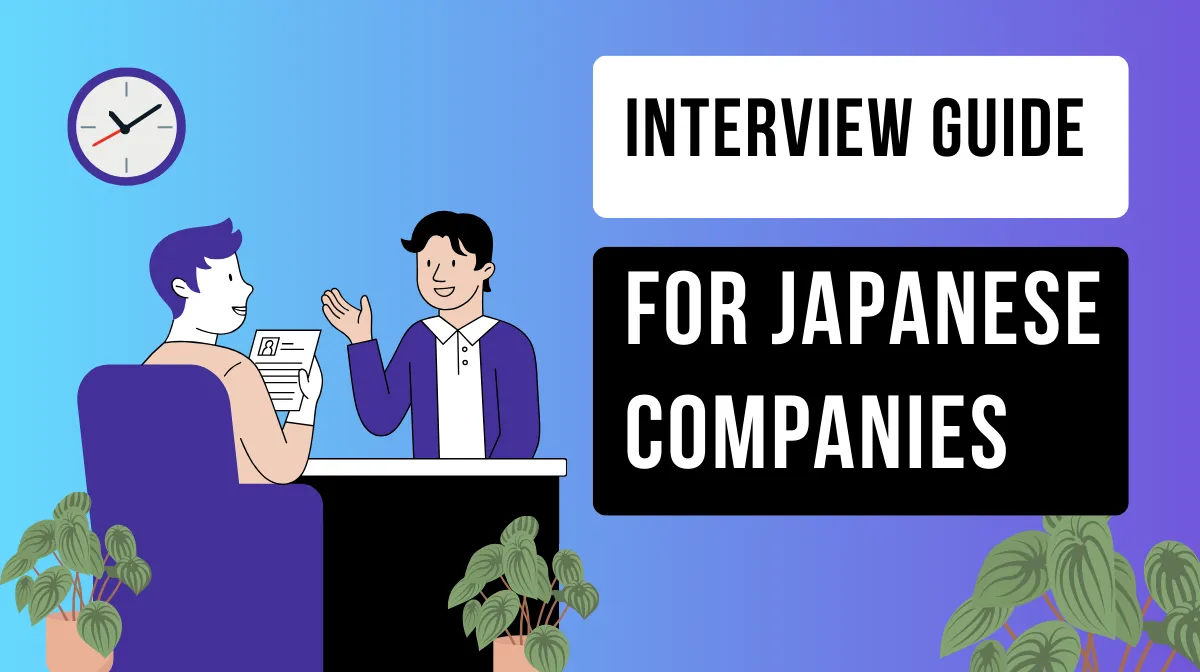When preparing for job interviews at Japanese companies as a foreign engineer, cultural differences can be just as challenging as demonstrating technical proficiency.
This article explains Japan’s unique interview process and provides a step-by-step guide to the skills and strategies needed at each stage, from initial interviews to technical assessments and final rounds.
We’ll show you how to leverage your strengths effectively to succeed in Japanese corporate interviews.
1.Understanding the Basics of Japanese Interviews

To avoid unnecessary anxiety or being underprepared, it’s important to first understand the types of interviews and language requirements in Japan.
Main Types of Interviews
Japanese interviews typically consist of three types “First Interview (HR),” “Technical Interview,” and “Final Interview.”
First Interview (HR)
This is the initial screening interview conducted by HR personnel involved in recruitment. The HR interviewer asks questions to assess the candidate’s personality and cultural fit with the company.
Strong Japanese communication skills are highly valued, as they can give you an advantage. Generally, Japanese Language Proficiency Test (JLPT) N2 level or higher is preferred, though companies typically evaluate candidates holistically, considering technical skills and other factors.
Technical Interview
Technical interviews are conducted for IT engineering and other technical positions.
Through specialized questions and challenges, interviewers evaluate your programming language proficiency, design skills, experience, and assess whether you possess the necessary communication and leadership abilities for the role.
Final Interview
This is the last stage of the interview process, often conducted by executives or the company president.
The primary focus is determining whether you align with the company’s culture and values. Getting the interviewer to think “I want to work with this person” is key to receiving an offer.
Language Used in Each Interview
As mentioned earlier, these interview processes are primarily conducted in Japanese.
Therefore, you need to prepare to explain yourself in Japanese, including your self-introduction, motivation for applying, and your strengths and weaknesses.
However, English is commonly used in IT engineering work. Technical explanations during technical interviews can often be given in English. It’s important to be flexible and switch between languages as appropriate.
2.Interview Question Preparation

It’s no exaggeration to say that most corporate interviews include similar questions.
This allows candidates to prepare responses in advance. Having prepared content ready will help you answer smoothly during the interview.
Technical Interview Questions
To assess your engineering skills, experience, and necessary abilities for the role, you might encounter questions like
Questions to verify technical stack alignment with company needs
- “What programming languages can you use?”
- “Which languages did you use in your previous job?”
- “What kind of server configurations have you implemented?”
Questions about your development experience
- “What services have you actually developed?”
- “What was the scale of projects you’ve worked on?”
- “Do you have experience with Agile development?”
Questions exploring your problem-solving approach
- “Can you tell us about a time you failed?”
- “How do you approach problems when they arise in a project?”
- “How do you feel about tackling unfamiliar tasks?”
Questions Specific to Foreign Nationals
You may be asked questions to gauge your commitment to working in Japan and your alignment with diversity values. Demonstrate your understanding of Japanese culture and ability to collaborate with others
Example questions
- “Why do you want to work in Japan?”
- “How long do you plan to work in Japan? What’s your future vision?”
- “What aspects of Japanese culture have surprised or confused you?”
- “How do you handle interactions with people from different cultural backgrounds and value systems?”
- “Do you have work experience in countries other than Japan?”
■日本でエンジニアとしてキャリアアップしたい方へ
海外エンジニア転職支援サービス『 Bloomtech Career 』にご相談ください。「英語OK」「ビザサポートあり」「高年収企業」など、外国人エンジニア向けの求人を多数掲載。専任のキャリアアドバイザーが、あなたのスキル・希望に合った最適な日本企業をご紹介します。
▼簡単・無料!30秒で登録完了!まずはお気軽にご連絡ください!
Bloomtech Careerに無料相談してみる
3.Japanese Interview Techniques

To effectively convey your understanding of the company and role while answering various questions sincerely, certain techniques are necessary. Here are two key approaches
Communication
During the interview, interviewers are checking whether “Japanese is being understood” and “understanding of Japanese business manners.”
Politeness and sincerity leave a positive impression. In particular, using appropriate honorific language (keigo) during the interview demonstrates respect.
Avoid monopolizing the conversation or interrupting the interviewer. It’s important to listen carefully and respond appropriately.
If you don’t understand a question in Japanese, don’t hesitate to ask for clarification. Show that you’re making an effort to communicate even when facing language challenges.
Emphasizing Your Strengths as a Foreign Professional
Foreign professionals possess unique strengths that differ from Japanese candidates. It’s important to highlight these strengths during interviews.
Global companies especially need professionals with strong language skills and cross-cultural understanding. Prepare to effectively communicate your unique strengths as a globally-minded engineer with technical expertise.
4.Interview Preparation Checklist

Here’s a compilation of points to prepare in advance and considerations for the interview day.
Advance Preparation
To articulate your points effectively and prevent post-employment mismatches in technical requirements or job duties, address these three areas:
- Research the Company Before the interview, thoroughly understand the company you’re interviewing with. Even exceptional technical skills won’t be valuable if you don’t align with the company’s business focus and culture.
Research the company’s operations, culture, and job requirements thoroughly to prevent misalignment of expectations later. This research also helps you provide convincing answers when asked about your motivation for applying.
- Anticipate Technical Interview Questions As mentioned in the example questions, technical interviews delve deep into your preferred skills and past experiences.
Companies assess not only your technical involvement but also your work attitude and team role tendencies (leadership vs. support). Prepare responses that maximize your self-presentation.
- Online Interview Setup For online interviews, ensure you have stable internet connectivity and necessary tools. Be mindful of keeping your background professional and free of personal items.
Online interviews have the disadvantage of making it harder to read reactions. Consider using more pronounced nodding and verbal acknowledgments than you would in person.
Day-of Interview Considerations
For Japanese company interviews, wearing a suit is standard unless otherwise specified.
Pay attention to grooming – women should “tie back hair” and “avoid heavy makeup,” while men should “maintain neat facial hair” and “avoid long hair” to create a positive impression.
Punctuality is also highly valued in interviews. Plan for unexpected delays or issues on the day. It’s essential to allow extra time.
However, arriving too early can inconvenience the company, so aim to arrive at the designated location 5-10 minutes before the interview start time.
■日本でエンジニアとしてキャリアアップしたい方へ
海外エンジニア転職支援サービス『 Bloomtech Career 』にご相談ください。「英語OK」「ビザサポートあり」「高年収企業」など、外国人エンジニア向けの求人を多数掲載。専任のキャリアアドバイザーが、あなたのスキル・希望に合った最適な日本企業をご紹介します。
▼簡単・無料!30秒で登録完了!まずはお気軽にご連絡ください!
Bloomtech Careerに無料相談してみる
5.Preparing for Success in Japanese Companies
Japanese company interviews evaluate both technical skills and cultural understanding.
By implementing the preparation and strategies introduced in this article, you can approach interviews while maximizing your strengths.
Take steady steps in your preparation and view each interview as an opportunity for growth. With persistence, doors will open.

















